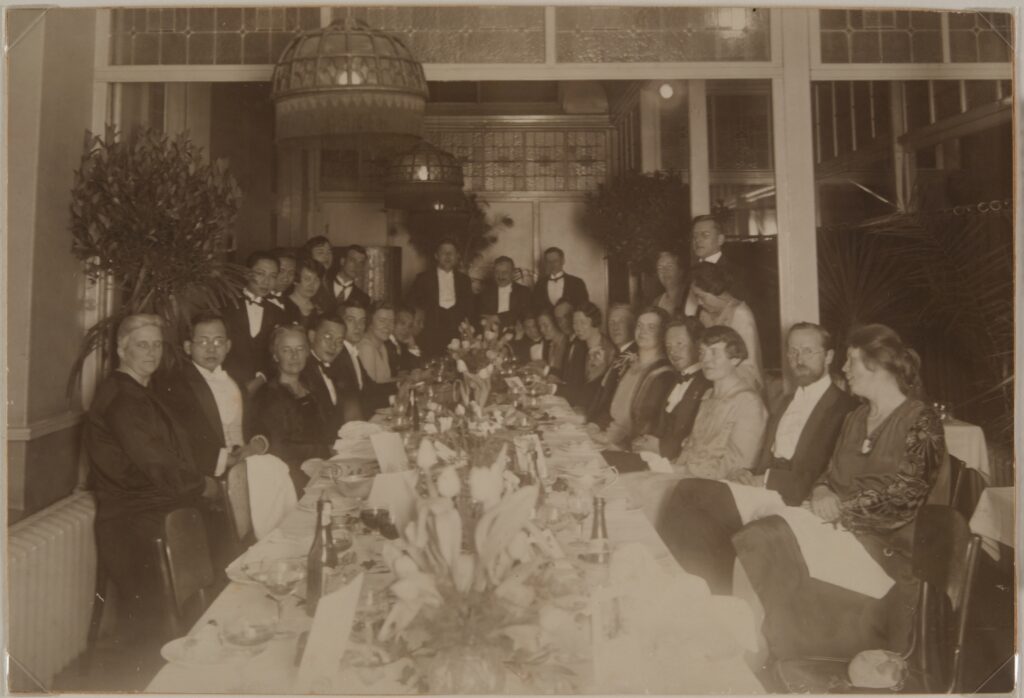1928 | PhD on leafroll disease potato plants
On 20 January 1928, Thung was awarded a PhD with honours for his thesis entitled Physiologisch onderzoek met betrekking tot het virus der bladrolziekte van de aardappelplant, Solanum tuberosum L. (Physiological investigations in relation to the virus of leafroll disease in potato plants, Solanum tuberosum L.)
Thung’s research question was whether, in leafroll disease, the virus disturbs metabolism, resulting in a build-up of starch in the stem, or whether the virus causes a disruption in the starch drainage channels, eventually leading to starch build-up.
He ultimately concluded that:
“The discs of the young leaf assimilate completely normally and the starch is discharged in the form of decomposition products, but it encounters an obstruction in the petiole.” And so, “(…) we can therefore conclude that the starch build-up is due to a malfunction in the elimination process itself.”
With this research, Thung established his name in the world of plant pathology. His findings would prove to be a first step towards a comprehensive understanding of how viruses work.
His promotion was celebrated with a promotion dinner in Hotel de Wereld in Wageningen
